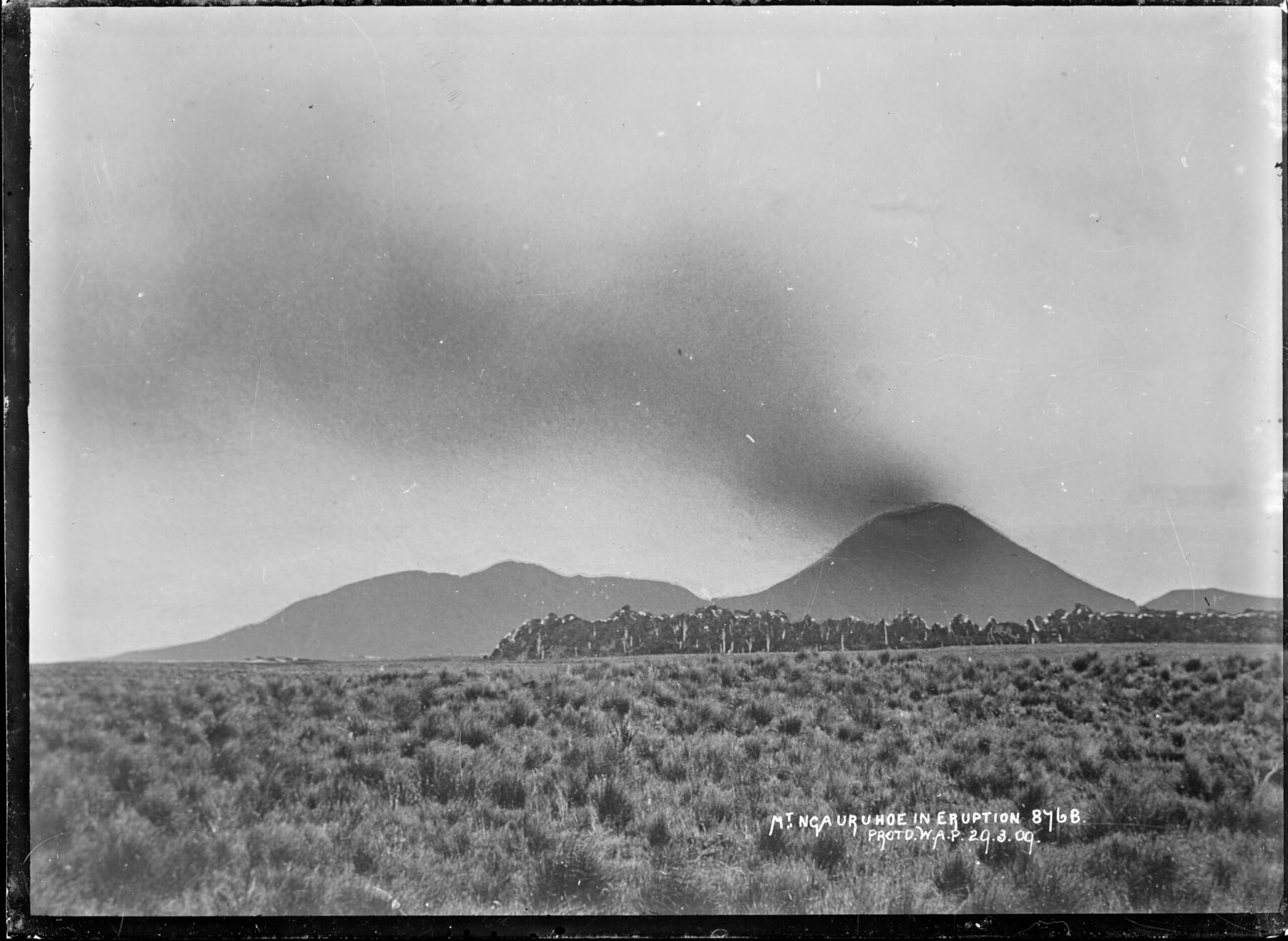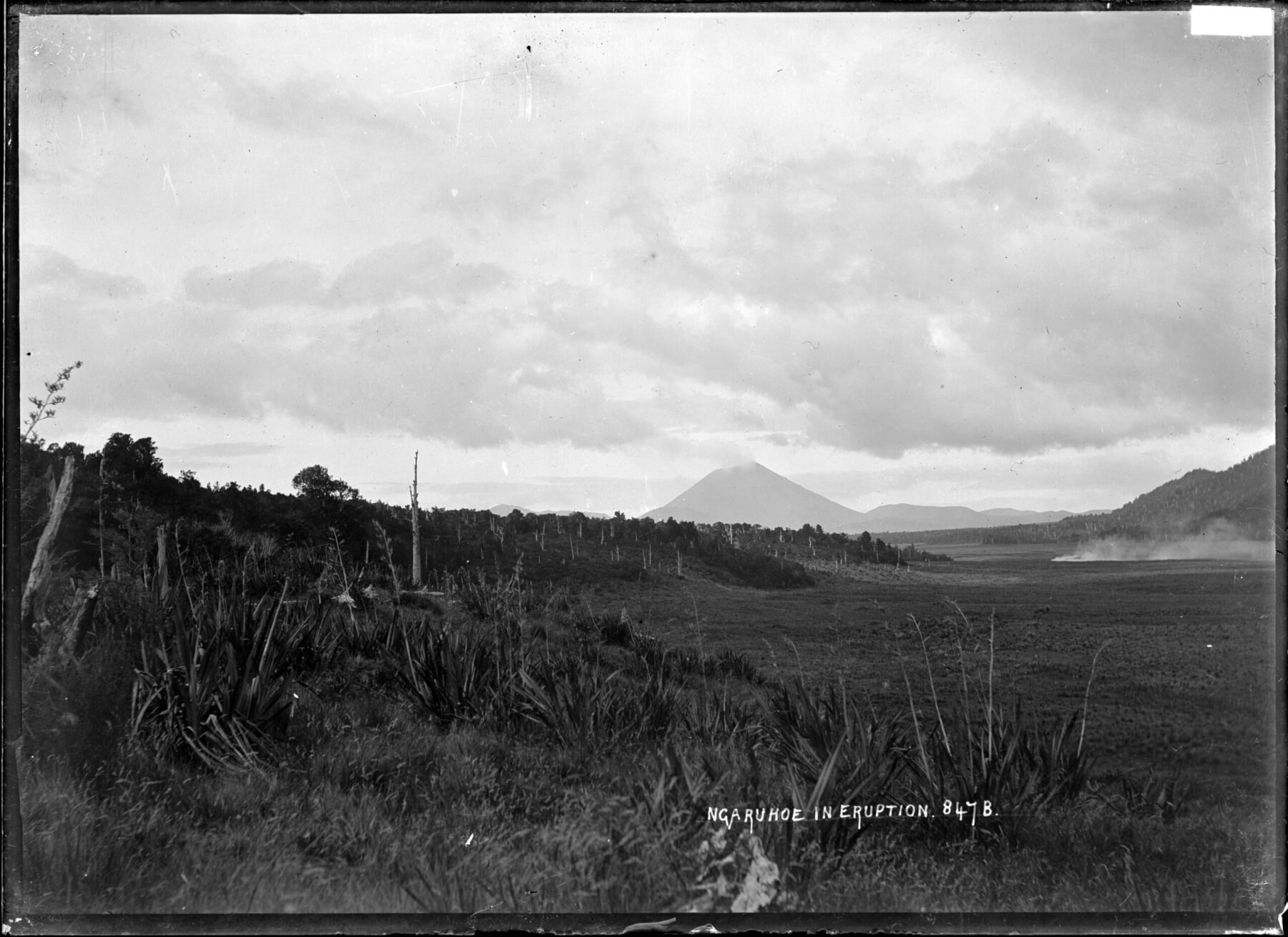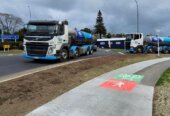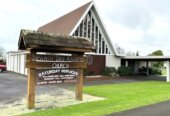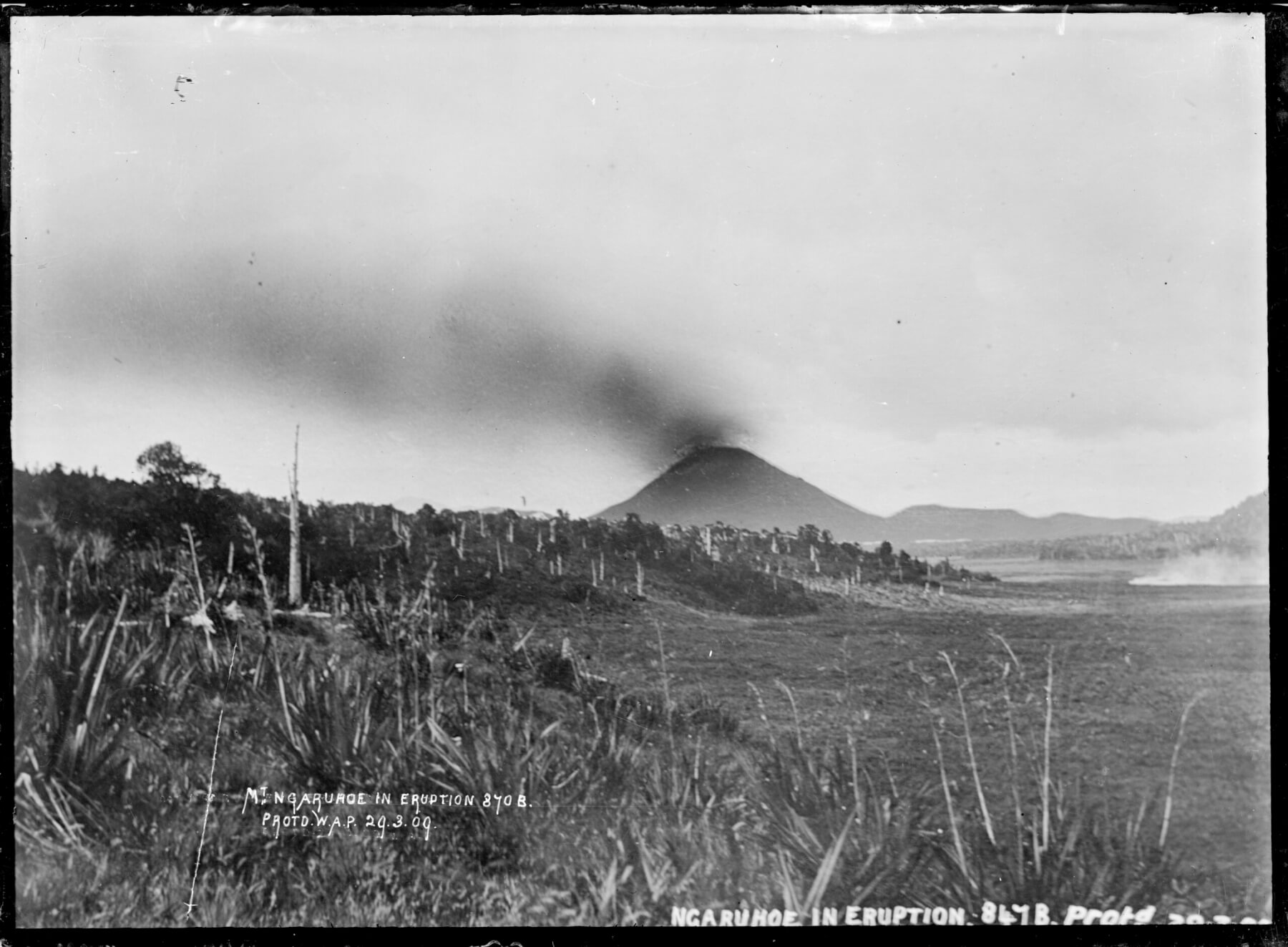
View of Mount Ngauruhoe in eruption. Photograph taken by William A Price, 29th March 1909. Photo: Alexander Turnbull Library.
On 19 February 1975 Ngāuruhoe, our most active volcano at the time, produced one of the more violent recent eruptions in Aotearoa. The seven-hour event launched an ash plume of pulverized rock and hot gases up to 11 kms above sea level, ejected large hot rocks out to several kilometres, and produced pyroclastic flows – rapid, hot avalanches of rock and volcanic gases, down into the Mangatepopo valley. This dangerous event was witnessed by a school group on the Tongariro Alpine Crossing from just below the cone. The ash plume drifted northwards with the wind, with a fine layer of ash falling at the family farm in Paterangi.
Walking down the streets of Te Awamutu we have stunning views of our local extinct volcanoes – Maungatautari, Pirongia, Kakepuku, and Te Kawa. On a clear day we can even see Ruapehu. Our beautiful landscape and fertile soils have been shaped largely by ancient volcanic activity. We might travel to our largest lake at Taupō, go skiing at Whakapapa, or visit Auckland – our largest city built right on top of a volcanic field. Some of us visited Whakaari before disaster struck. We may even go overseas to one of the 40-50 ongoing eruptions (the average on any given day) or to the nearly 1400 potentially active volcanoes around the world. We live on a spectacularly active planet!
Volcanic ash is the most widespread volcanic hazard and is often misunderstood. Ash plumes rise above the vent then are carried by the wind, where it deposits increasingly fine particles of rock below it, so depending on the wind direction we could experience it here again if Ruapehu or Tongariro produced a size
able enough eruption. Depending on how much ash accumulates on surfaces it can be a pain for farming, electricity networks, transportation networks, communications, electronics, and it is corrosive so careful how you wipe it off your glasses. It can also be an issue for crops and animals and can cause health complications for those with pre-existing lung issues like asthma or chronic obstructive pulmonary disease. From volcanic ash being incorrectly called “smoke” to rumours of it shredding lungs if inhaled (it won’t), there is a lot of misunderstanding about every aspect of volcanism, a process that ultimately has positively helped life on Earth as we know it.
Thankfully for many of these impacts there are things we can do to prepare, which also helps us to recover much faster, and the first step is knowledge.
Why talk about volcanoes here? Because our region was shaped by them, we could feel the impacts of an eruption here either through ashfall or larger eruptions impacting critical networks in our country, and many people visit volcanoes around the world, some of which erupt with little to no warning. Knowledge does save lives. Plus, volcanoes are just cool and we see them on the news every now and again.
My life has been driven by a deep love of volcanoes and eruptions since I was a local kid, encouraged by those around me and even introduced to the concept of a volcanologist in a classroom at Te Awamutu College.
I couldn’t turn down the opportunity to share with you what I’ve learned in my hometown, with much love and enthusiasm.
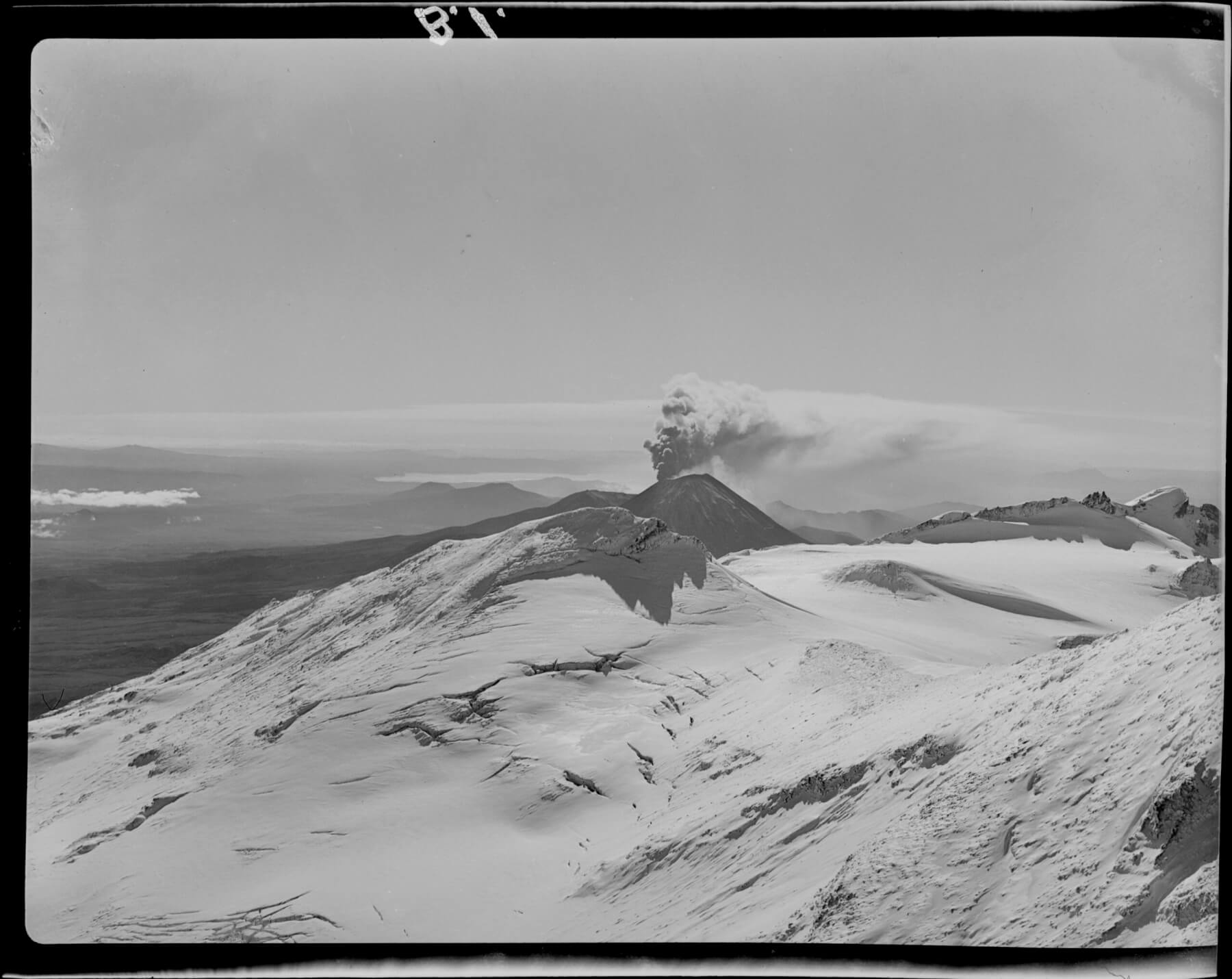
Mount Ngauruhoe erupting, Tongariro National Park. Whites Aviation Ltd: Photographs. Ref: WA-34042-F. Alexander Turnbull Library, Wellington, New Zealand.
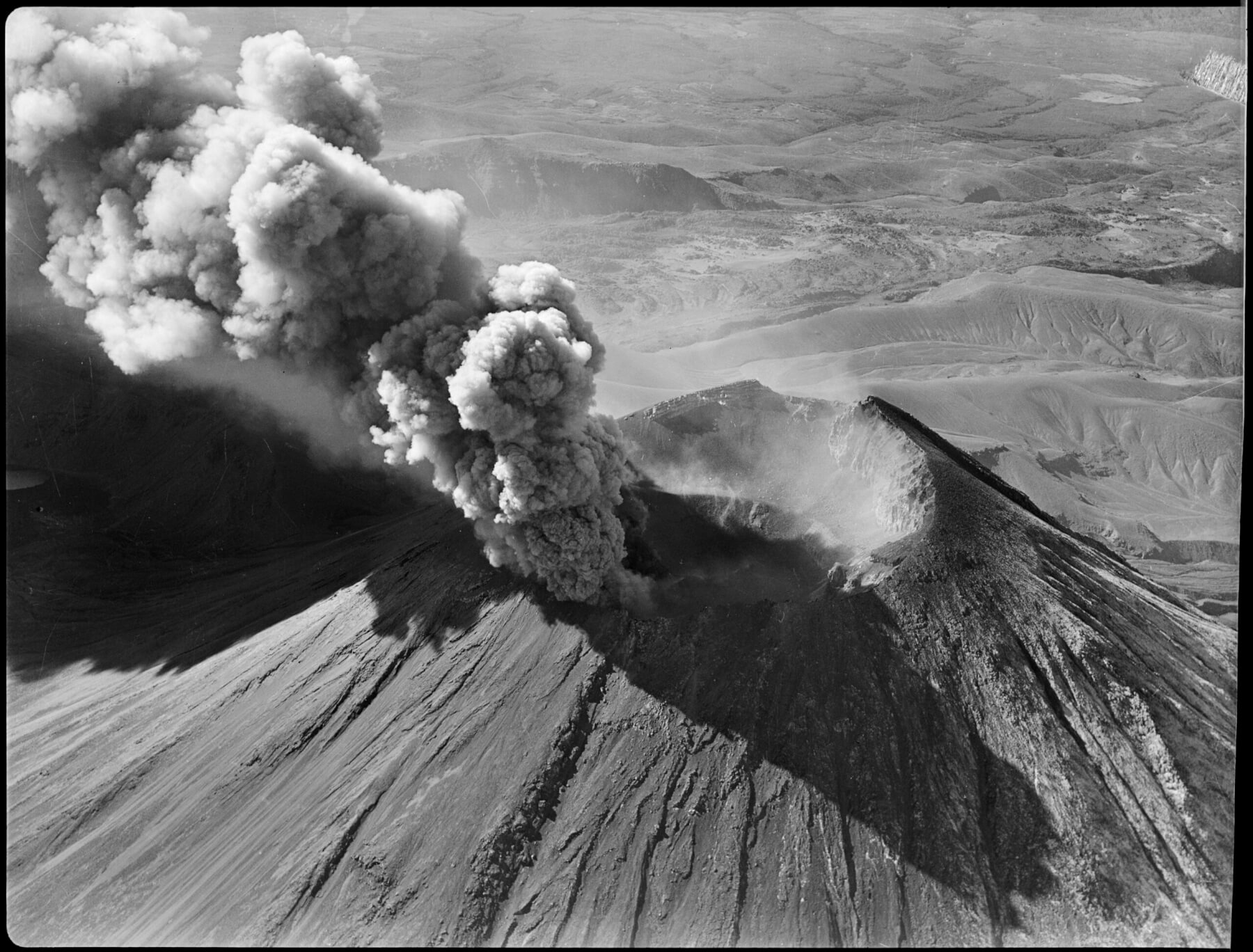
Mt Ngauruhoe. Whites Aviation Ltd: Photographs. Ref: WA-13077A-F. Alexander Turnbull Library, Wellington, New Zealand.




